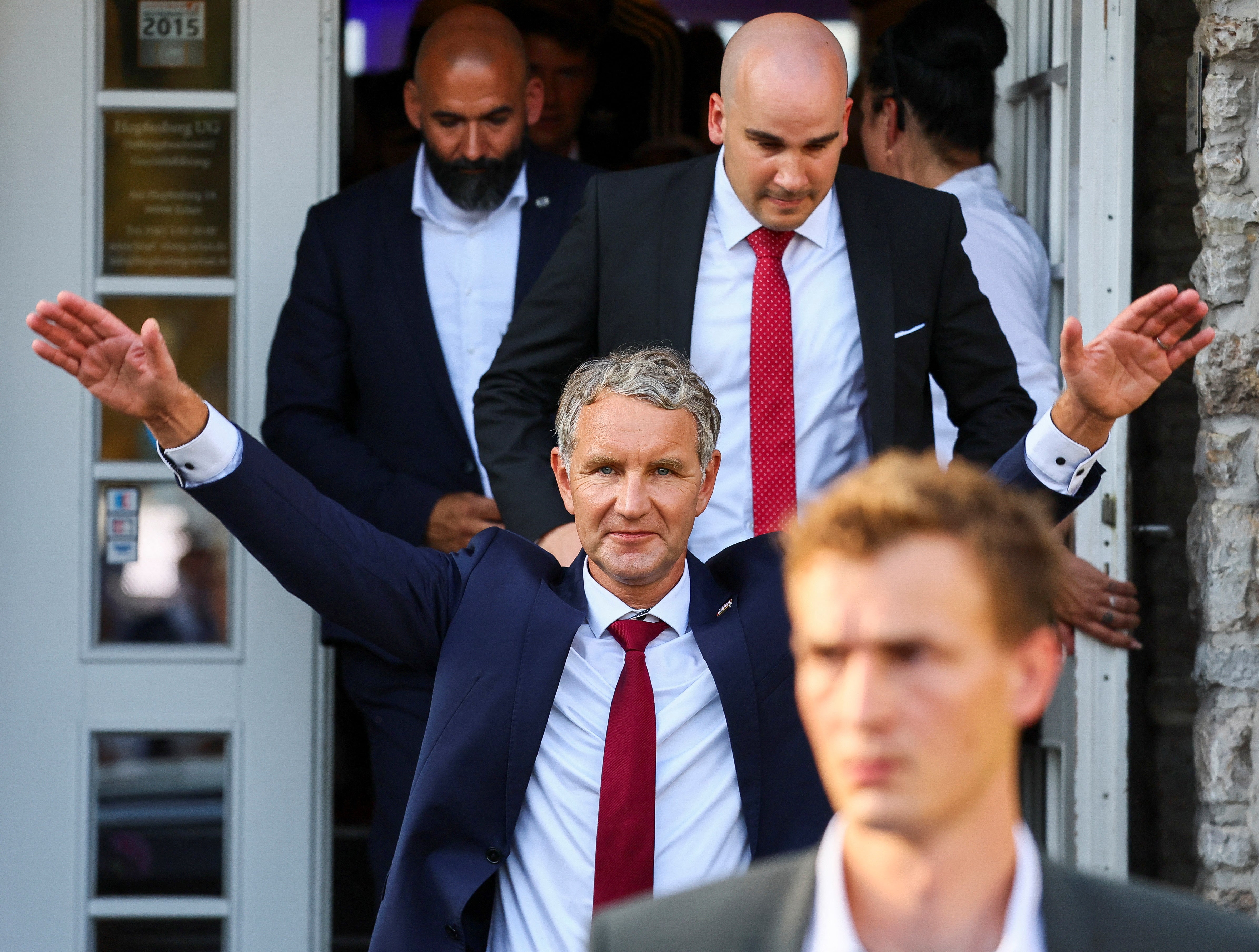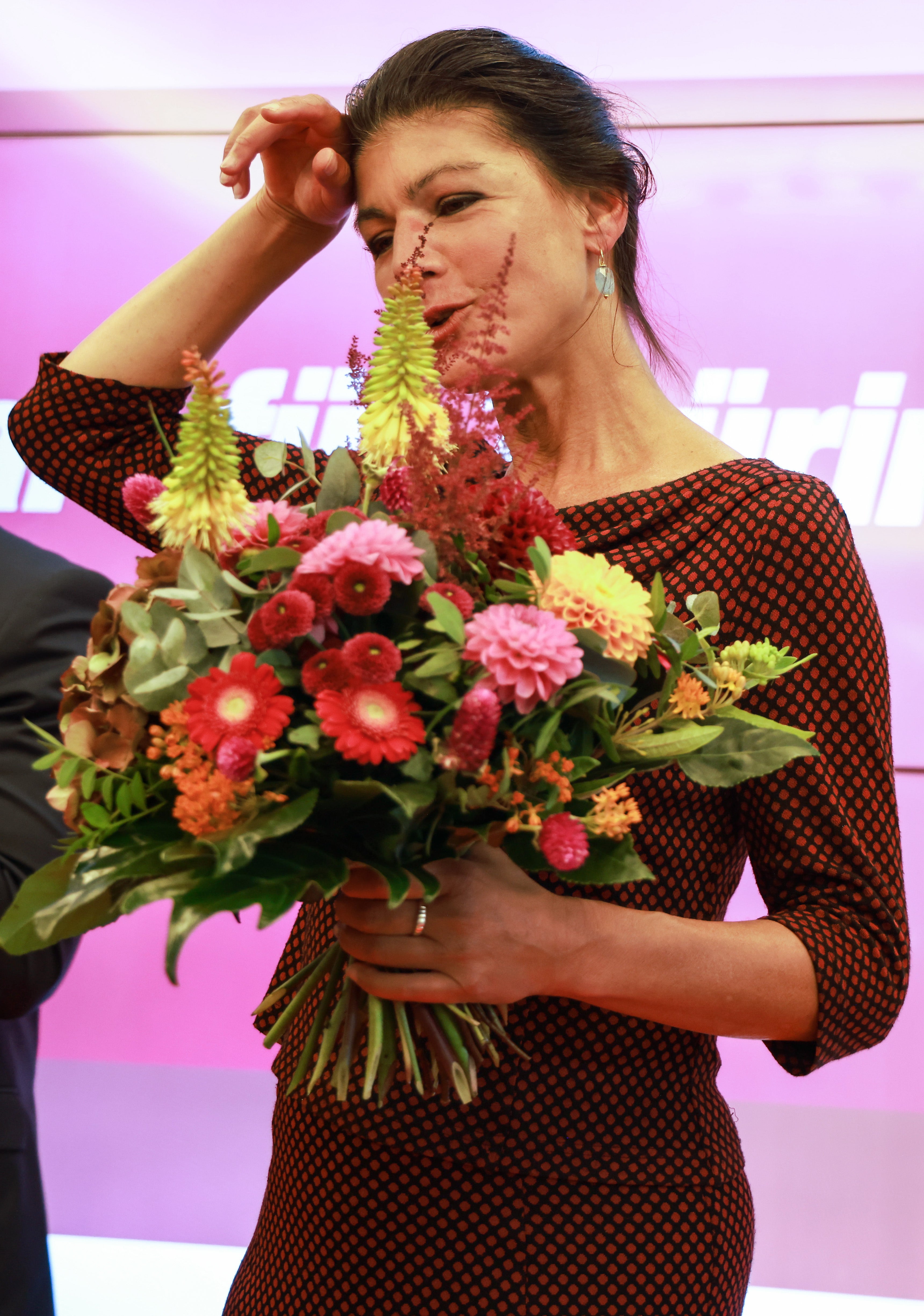Far-right Alternative For Germany party set for shock election win
Controversial politician Björn Höcke hails anti-immigration party’s ‘historic victory’
Germany’s far-right Alternative for Germany party was on track to coming first in the state election in Thuringia on Sunday, an exit poll said, but it is unlikely to be able to form a government.
Known as AfD, Alternative for Germany could become the first far-right party to win a regional election in Germany since World War Two.
Alternative for Germany was on course for 33.5 per cent of the vote compared to 23.4 per cent in 2019, followed by the Conservatives CDU at 24.5 per cent, up from 21.7 per cent. Upstart populist party, the Sahra Wagenknecht Alliance, or BSW, came in third place on 14.5 per cent.

With a year to go until Germany’s national election, the results look punishing for Chancellor Olaf Scholz’s governing coalition.
The far-right’s top candidate in Thuringia, Björn Höcke, hailed the “historic victory”, which filled him with “great, great, great pride and satisfaction”.
He warned that creating a government without the AfD would not be “good for the state”.
“Whoever wants stability in Thuringia has to integrate the AfD,” he told German broadcaster ARD.
Mr Höcke has been previously convicted of knowingly using a Nazi slogan at political events, but he is appealing the ruling.

Alice Weidel, a national co-leader of AfD, described the results as a “requiem” for Mr Scholz’s coalition.
Mr Scholz on Tuesday called the election results in Saxony and Thuringia “worrying”.
“Our country cannot and must not get used to this. The AfD is damaging Germany. It is weakening the economy, dividing society and ruining our country’s reputation,” he told Reuters.
Holocaust survivor Charlotte Knobloch told the BBC that the results had left the country in danger of becoming “more unstable, colder and poorer, less safe and less worth living in”.
It is a painful setback for the unpopular national government but the Social Democrats look to have cleared the 5 per cent threshold for staying in the parliaments of Thuringia and Saxony, which is also holding elections.
However, Mr Scholz’s coalition partners, the Greens and the business-friendly Free Democrats looked less secure in both parliaments, in a development that could herald yet more conflict.
All parties, including the BSW, have pledged not to allow into coalition an AfD they regard as anti-democratic and extremist.
The CDU’s national general secretary, Carsten Linnemann, said that “voters in both states knew that we wouldn’t form a coalition with AfD, and it will stay that way — we are very, very clear on this”.
The far-right party secured its first mayoral and county government posts last year, and now says it wants to govern at state level, too.
AfD is at its strongest in the formerly communist east, and the domestic intelligence agency has the party’s branches in both Saxony and Thuringia under official surveillance as “proven right-wing extremist” groups.
It came as Reform UK chairman Zia Yusuf told The Independent he is looking to the German elections as a sign of new nationalist parties gaining popularity.
He said: “We are a very different party from them but we live in an unprecedented time and we have five years not two to double our vote.”
Mr Scholz’s party stayed in the two state legislatures with single-digit support, but the environmentalist Greens lost their seats in Thuringia. The two parties were the junior coalition partners in both outgoing state governments.
The third party in the national government, the pro-business Free Democrats, also lost its seats in Thuringia. It already had no representation in Saxony.
The BSW won more votes than all three parties in Scholz’s coalition, gathering 11.5-15.6% just eight months after its founding.
Ms Wagenknecht celebrated the party's success but reiterated its refusal to work with AfD and said she hopes to form "a good government" with the CDU.
A third state election follows on 22 September in another eastern state, Brandenburg, currently led by Mr Scholz’s party. Germany’s next national election is due in a little over a year.
Join our commenting forum
Join thought-provoking conversations, follow other Independent readers and see their replies
Comments
Bookmark popover
Removed from bookmarks